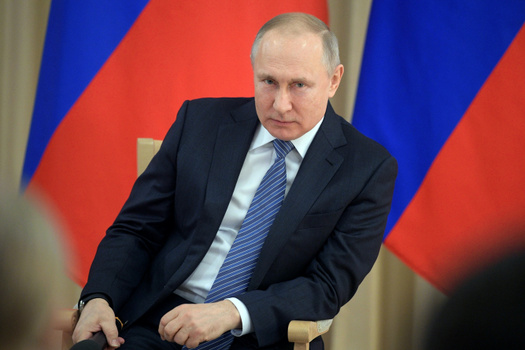
The fragile durability of the Putin regime Political scientist Grigory Golosov says the Kremlin likely regrets Russia’s constitutional plebiscite, but the show must go on
Мы говорим как есть не только про политику. Скачайте приложение.
The new constitutional amendments just adopted in a nationwide plebiscite have dramatically increased the president’s powers. Most importantly, Vladimir Putin now has the option of remaining in office until 2036. For years now, scholars and pundits have debated whether Russia has any remaining traces of democracy or if it has succumbed completely to authoritarianism. Meduza asked political scientist Grigory Golosov if the latest voting results put an end to that discussion.
Before the start of the 2000s, Russia was an imperfect electoral democracy. An authoritarian regime was established between 2003 and 2004. Since then, it’s gone through several phases of consolidation. The consolidation process is now essentially over because it’s fundamentally important for a regime that exists as a personal dictatorship to ensure the personal irremovability of power — to protect not the ruling party, as is the case in some authoritarian regimes, but the supreme leader personally. This has now been achieved, so I can determine that the consolidation of authoritarianism in Russia is done: they’ve created the institutional opportunity for Putin to remain in power until the end of his days.
The vote wasn’t really necessary and I think Putin later regretted that he initiated this process. Yes, it was important for him to ensure that these constitutional amendments were adopted. As the central election commissioner correctly noted, they were adopted [even without a nationwide plebiscite] in accordance with the procedure stipulated in the Constitution itself. But Putin wanted to stage a propagandistic show to demonstrate his triumph in something like an election, to make sure it didn’t look like he was doing it all through an obedient State Duma, Federation Council, and legislative assemblies.
The further things progressed, however, the more obvious it became that there was no clean way forward. And though [Kremlin spokesman Dmitry] Peskov now says they won triumphantly, everyone basically understands that this is no triumph and the whole thing is actually a big disgrace. I think they knew this in advance, but the wheels were already in motion after Putin promised publicly that there would be a vote, and then the Constitutional Court basically made it mandatory with its ruling on the amendments. They could have backpedaled through the court again, but apparently Putin reasoned that it would be improper and awkward and show that he was chickening out.
How long a regime like this can last depends on what kind of resistance it faces. If there’s no one, it will last exactly as long as Putin does — not just to 2036 but beyond, if he lives to old age. If there’s resistance, everything can change unpredictably. The problem with such personalistic authoritarian regimes is that the catalyst for oppositionist mobilization can be entirely random events related to changing context in the ruling group, in foreign policy, and so on.
This is a feature of these regimes. It’s easy to predict what will happen after they weaken politically, but it’s very hard to say how exactly this will happen or when (though it can happen at any moment).
Recorded by Farida Rustamova
Translation by Kevin Rothrock